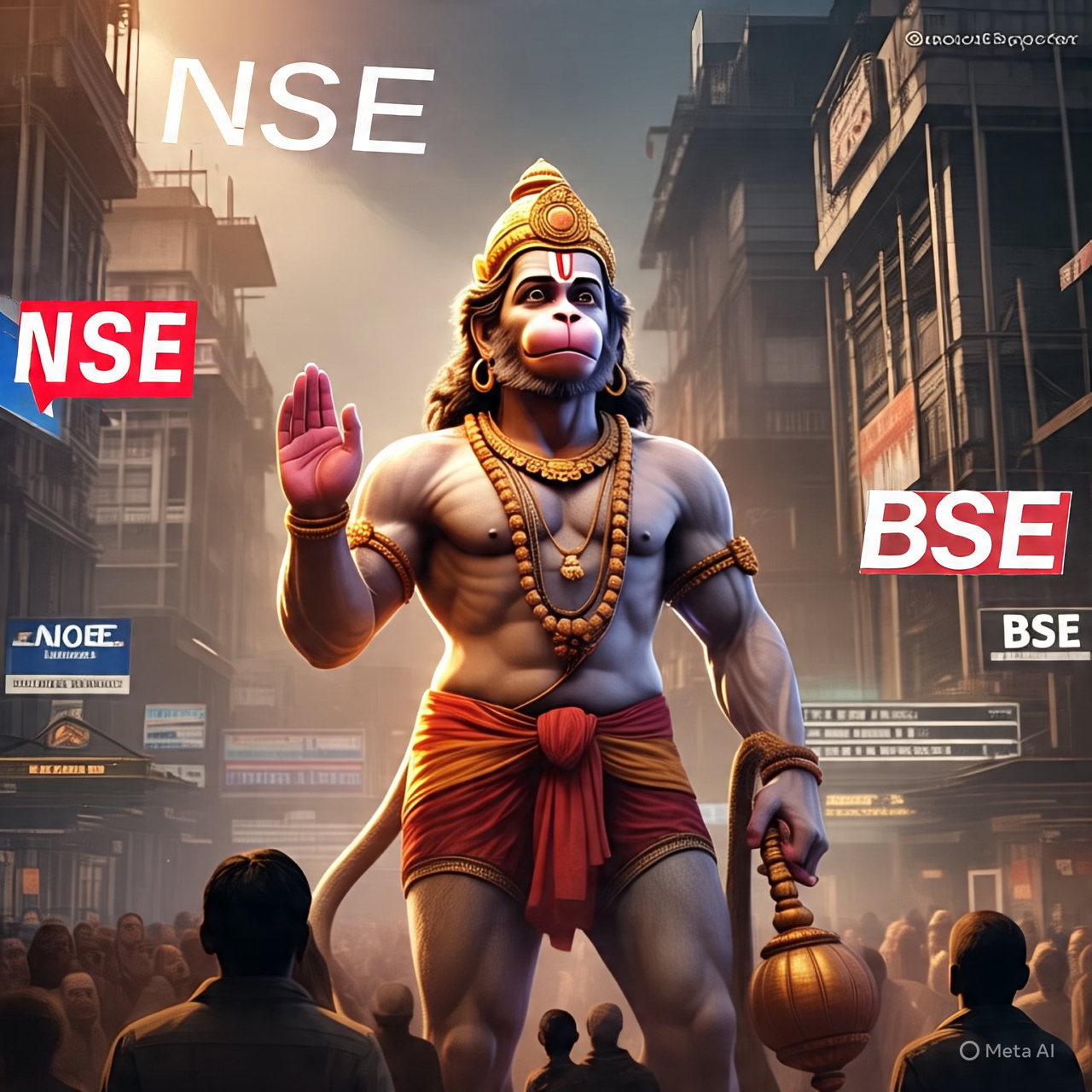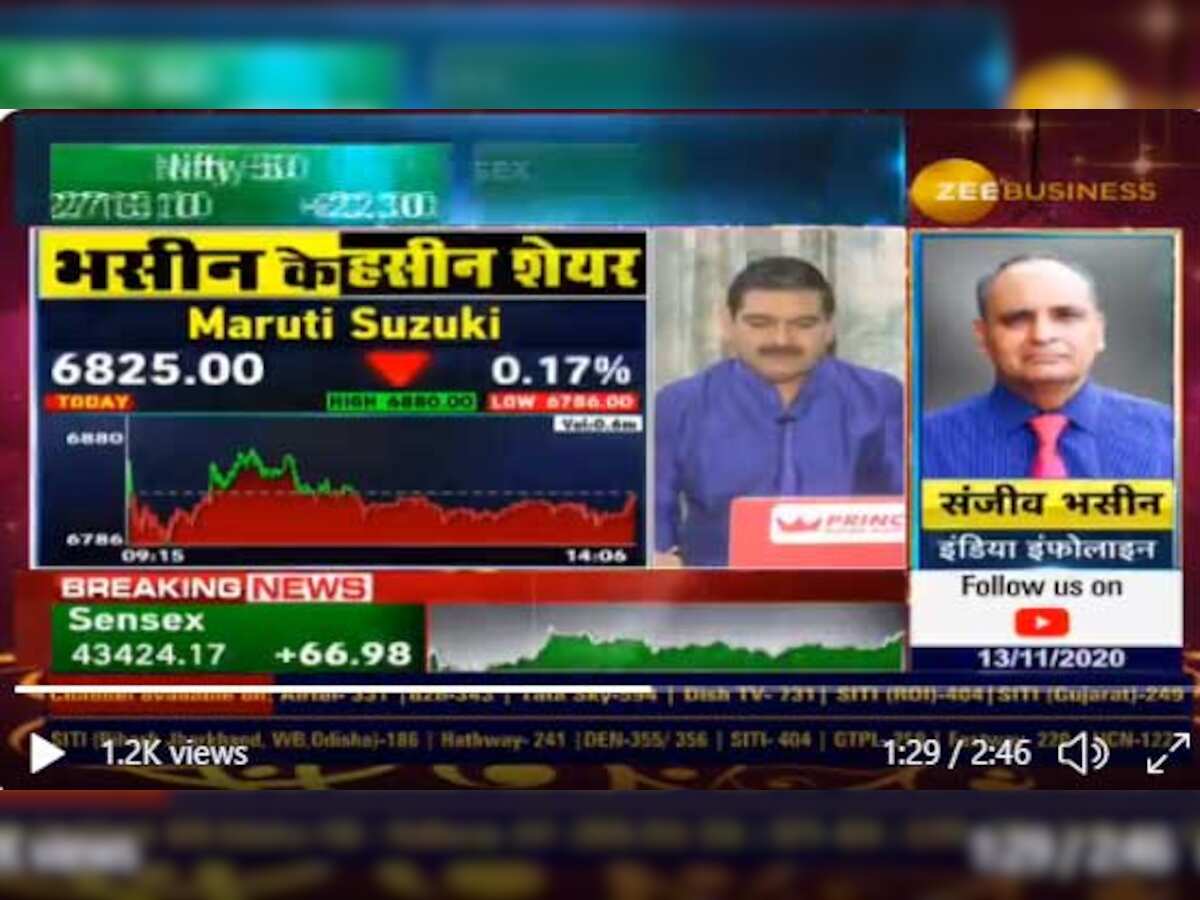The National Stock Exchange (NSE) has officially applied to shift its derivative contract expiry day from Thursday to Tuesday. Interestingly, the Bombay Stock Exchange (BSE) already conducts its weekly expiry on Tuesdays. This development has sparked a flurry of speculation in the grey market, with the Securities and Exchange Board of India (SEBI) hinting at a decision by the end of May 2025. Even the mere possibility of NSE switching to Tuesday has caused BSE’s stock to tumble by 5% on 23rd May 2025. So, what makes Tuesday—regarded as the day of Lord Hanuman—so significant for both exchanges?
Lord Hanuman, the embodiment of strength, courage, and devotion, is revered for overcoming great odds. Coincidence or not, Tuesday expiries have proven to be remarkably beneficial for BSE. Since implementing Tuesday expiries, BSE’s average daily derivatives turnover has skyrocketed—from ₹34,75,477.85 crore in 2023–24 to ₹1,10,66,881.25 crore in 2024–25, and further to ₹1,35,64,890.97 crore in 2025–26. That’s a fourfold increase in just one and a half year. In Q4 FY2025, BSE’s consolidated net profit surged 361.9% to ₹494.42 crore, and revenue from operations rose 74.94% to ₹846.64 crore, compared to the same period the previous year.
Given this exponential growth, it’s only natural that NSE would want a piece of the action. If SEBI allows both exchanges to have the same expiry day—Tuesday—NSE is likely to attract a greater share of the volumes due to its superior infrastructure, technological prowess, and strong surveillance systems. This prospect has already triggered nervousness in the markets, with BSE’s stock facing selling pressure.
The NSE IPO adds another layer to this story. Many influential investors with connections in power corridors have already acquired significant pre-IPO stakes in NSE. Beyond pushing for the IPO itself, they’re shaping a market environment conducive to a stellar listing. With the NSE IPO on the horizon, BSE is set to face direct competition on the exchange front. Investors seeking exposure to exchange businesses may gradually gravitate toward NSE, the world’s largest derivatives exchange, adding further pressure to BSE’s stock price.
In March 2025, SEBI floated a consultation paper suggesting exclusive expiry days—Tuesdays and Thursdays—for different exchanges to avoid overlap. NSE is lobbying hard for Tuesday. Should SEBI grant its request, it could significantly erode BSE’s recent profitability boost. This move is also expected to fuel grey market enthusiasm, raise the IPO price band, and deliver strong listing gains for NSE.
Reports suggest that NSE has reached out to the central government to facilitate IPO clearance. Shortly after, the SEBI Chairman made favorable statements. Insiders reveal that the government wants NSE to resolve all pending litigations and clean up its record within three months. A clean Draft Red Herring Prospectus (DRHP), backed by robust financials and reduced risk, would position NSE strongly for its market debut. A Tuesday expiry would only enhance its appeal to investors.
In conclusion, SEBI should consider allowing NSE to shift its expiry to Tuesday. A level playing field where both NSE and BSE compete on equal terms would usher in a new era of innovation, investor-centric offerings, and healthy competition. May Lord Hanuman bless both exchanges—and by extension, the investor community—with prosperity and strength.


